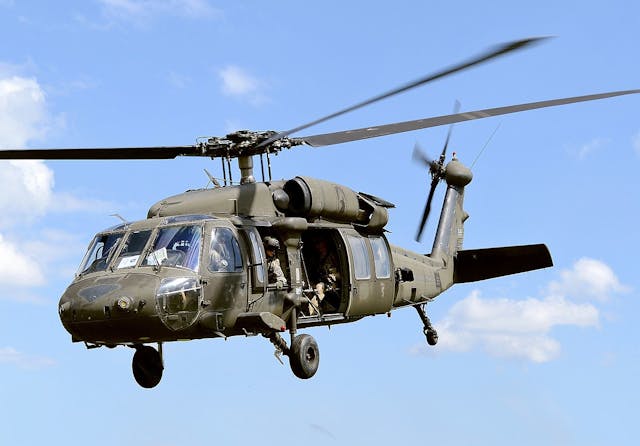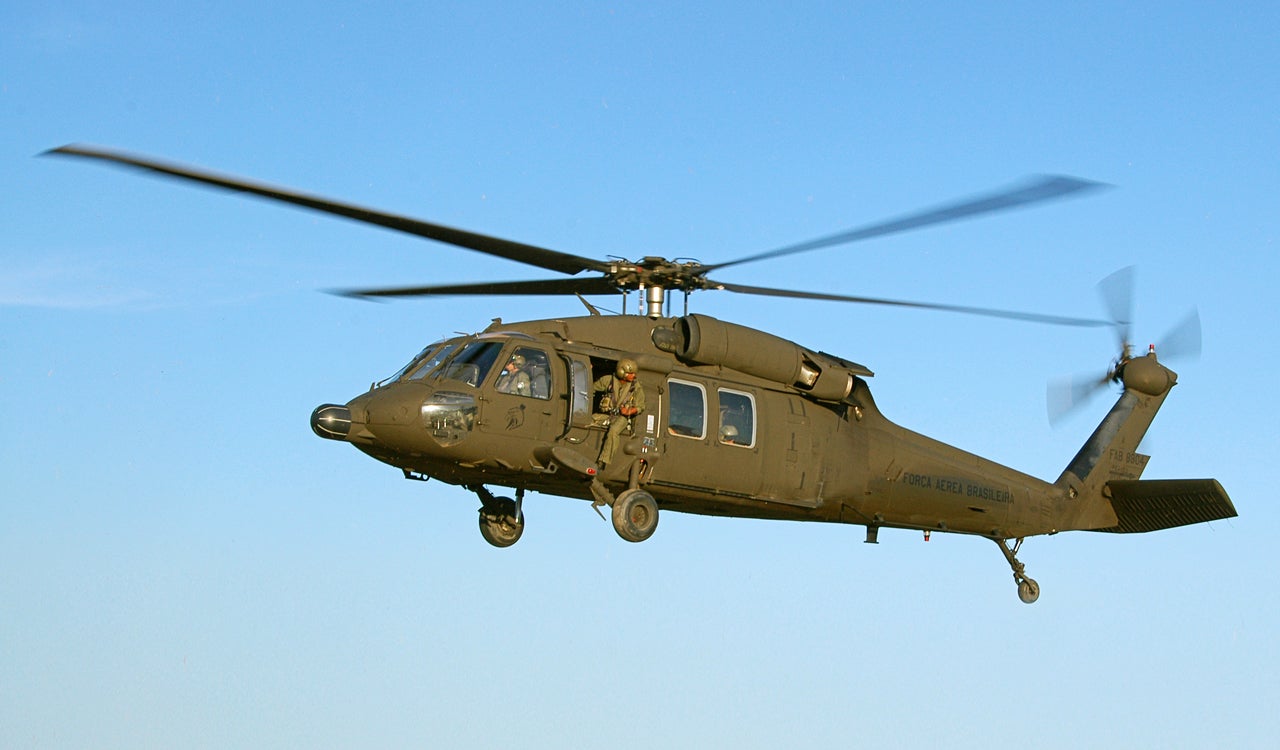UH 60 Helicopter: Advanced Avionics and Battle Equipments
UH 60 Helicopter: Advanced Avionics and Battle Equipments
Blog Article
The Impact of Sustainable Practices on the Future of Airplane Operations and Emissions Reduction
As the aeronautics sector encounters increasing scrutiny over its ecological effect, the adoption of sustainable practices emerges as an important path towards future airplane procedures and discharges reduction. Developments in lasting aviation fuels and improvements in hybrid propulsion technologies stand at the leading edge of this transformation, appealing substantial reductions in greenhouse gas exhausts.

Overview of Sustainable Practices
Lasting techniques in airplane procedures incorporate a variety of strategies targeted at reducing ecological impact while maintaining functional effectiveness. These methods are necessary in the aeronautics industry's dedication to decreasing its carbon impact and sticking to global environmental standards. Key campaigns consist of optimizing flight paths to lower fuel consumption, improving maintenance procedures to make sure aircraft run at peak efficiency, and executing advanced innovations such as winglets and lightweight materials that improve aerodynamics.

Educating and engaging personnel on sustainability methods likewise play an essential role, promoting a society of ecological duty within organizations. In general, the integration of these sustainable techniques not only helps lower discharges however additionally improves the lasting viability of the aviation sector, ensuring it satisfies the needs of both clients and regulatory bodies while contributing to global sustainability goals.
Innovative Gas Alternatives
Various cutting-edge fuel alternatives are becoming pivotal remedies to reduce the aviation sector's dependence on conventional nonrenewable fuel sources. Amongst these options, Lasting Air travel Gas (SAFs) have actually obtained considerable attention as a result of their prospective to decrease lifecycle greenhouse gas discharges by as much as 80% compared to standard jet fuels. SAFs are obtained from numerous feedstocks, consisting of waste oils, agricultural deposits, and also algae, making them a versatile alternative for the industry.
Another promising choice is hydrogen fuel, which, when used in fuel cells, produces just water vapor as a by-product. This zero-emission potential presents a considerable opportunity for decarbonizing flight procedures, particularly for short-haul flights and local airplane. Additionally, electrical propulsion systems are being explored, leveraging battery innovation to power airplane. While present battery capacity limitations variety and haul, continuous improvements might soon make electric trips viable for certain applications - uh 60.
Lastly, biofuels originated from biomass are being explored, offering an eco-friendly alternative that can be blended with typical fuels. Collectively, these innovative gas alternatives represent an important action toward attaining a lasting air travel ecological community, aligning with global discharges reduction targets and improving the market's environmental stewardship.
Technological Improvements in Aviation

How can technical advancements improve the future of aeronautics? Developments such as hybrid and electrical propulsion systems are at the forefront, appealing significant decreases in gas usage and greenhouse gas exhausts.
In addition, the execution of sophisticated products, such as lightweight compounds, adds to boosted the rules of aerodynamics and fuel performance. Using synthetic knowledge and artificial intelligence in flight operations optimizes path preparation and reduces fuel shed by allowing real-time changes based upon climate and web traffic conditions. In addition, the development of independent and remotely piloted aircraft systems stands to change cargo and traveler transportation, potentially boosting efficiency while minimizing human mistake.
Moreover, sustainable air travel technologies, including innovative air traffic monitoring systems, can decrease and enhance procedures blockage, resulting in reduced emissions throughout flight. These developments jointly represent a standard Bonuses change in air travel, assuring a future where sustainability and operational effectiveness are intertwined, thus sustaining the sector's dedication to reducing its environmental effect.

Regulative Structure and Conformity
Because of the expanding focus on environmental stewardship within the aviation industry, the regulatory structure controling reference airplane operations is progressing to advertise lasting practices. Regulative bodies, such as the International Civil Aviation Company (ICAO) and different national aviation authorities, are introducing strict guidelines focused on lowering exhausts and enhancing operational effectiveness.
These regulations typically consist of the adoption of Sustainable about his Air travel Gas (SAF), which has been identified as an essential component in attaining reduced carbon footprints. Conformity with these regulations requires airlines to apply sophisticated modern technologies and functional methods, such as optimized trip paths and enhanced air website traffic administration, to reduce fuel consumption.
Furthermore, the enforcement of emissions trading schemes and carbon countering campaigns is coming to be progressively prevalent, engaging airlines to check and report their discharges properly. Non-compliance can result in substantial penalties, hence pushing operators to focus on sustainability in their organization designs.
Inevitably, the developing governing landscape not only drives advancement and investment in eco-friendly technologies but likewise fosters a society of accountability within the air travel sector. As these frameworks continue to create, the concentrate on lasting techniques will certainly be indispensable to attaining the market's long-lasting ecological objectives.
Future Trends in Aircraft Operations
As the aeronautics market adapts to a progressively stringent regulative atmosphere, future trends in aircraft procedures are set to focus on cutting-edge solutions that additionally enhance sustainability and efficiency - uh 60. Key developments will likely consist of the adoption of innovative air traffic monitoring systems, which make use of real-time data and expert system to optimize trip paths, minimizing gas intake and discharges
An additional significant trend is the raised assimilation of sustainable aviation fuels (SAFs) These alternatives to conventional jet fuel, obtained from renewable sources, can substantially decrease lifecycle greenhouse gas discharges. The market's dedication to SAFs will likely increase as airlines work together with fuel manufacturers to ensure accessibility and cost-effectiveness.
Furthermore, the push towards electrification and crossbreed propulsion systems is getting momentum. Emerging aircraft layouts will integrate these modern technologies, using quieter and much more reliable operations, specifically for short-haul flights.
Conclusion
The adoption of lasting aviation gas, coupled with improvements in hybrid and electric propulsion systems, is vital for lessening lifecycle greenhouse gas discharges. Optimizing trip courses and embracing ingenious modern technologies contribute to a quieter and extra environmentally friendly aviation industry.
Advancements in lasting aviation gas and innovations in hybrid propulsion technologies stand at the center of this improvement, encouraging substantial decreases in greenhouse gas emissions.Numerous innovative fuel options are arising as critical remedies to minimize the air travel sector's dependence on traditional fossil gas - uh 60. Among these choices, Lasting Aviation Gas (SAFs) have gained considerable interest due to their prospective to lower lifecycle greenhouse gas exhausts by up to 80% compared to standard jet fuels.One more substantial pattern is the increased combination of sustainable aviation gas (SAFs) The adoption of sustainable air travel fuels, coupled with advancements in electric and hybrid propulsion systems, is necessary for reducing lifecycle greenhouse gas emissions
Report this page